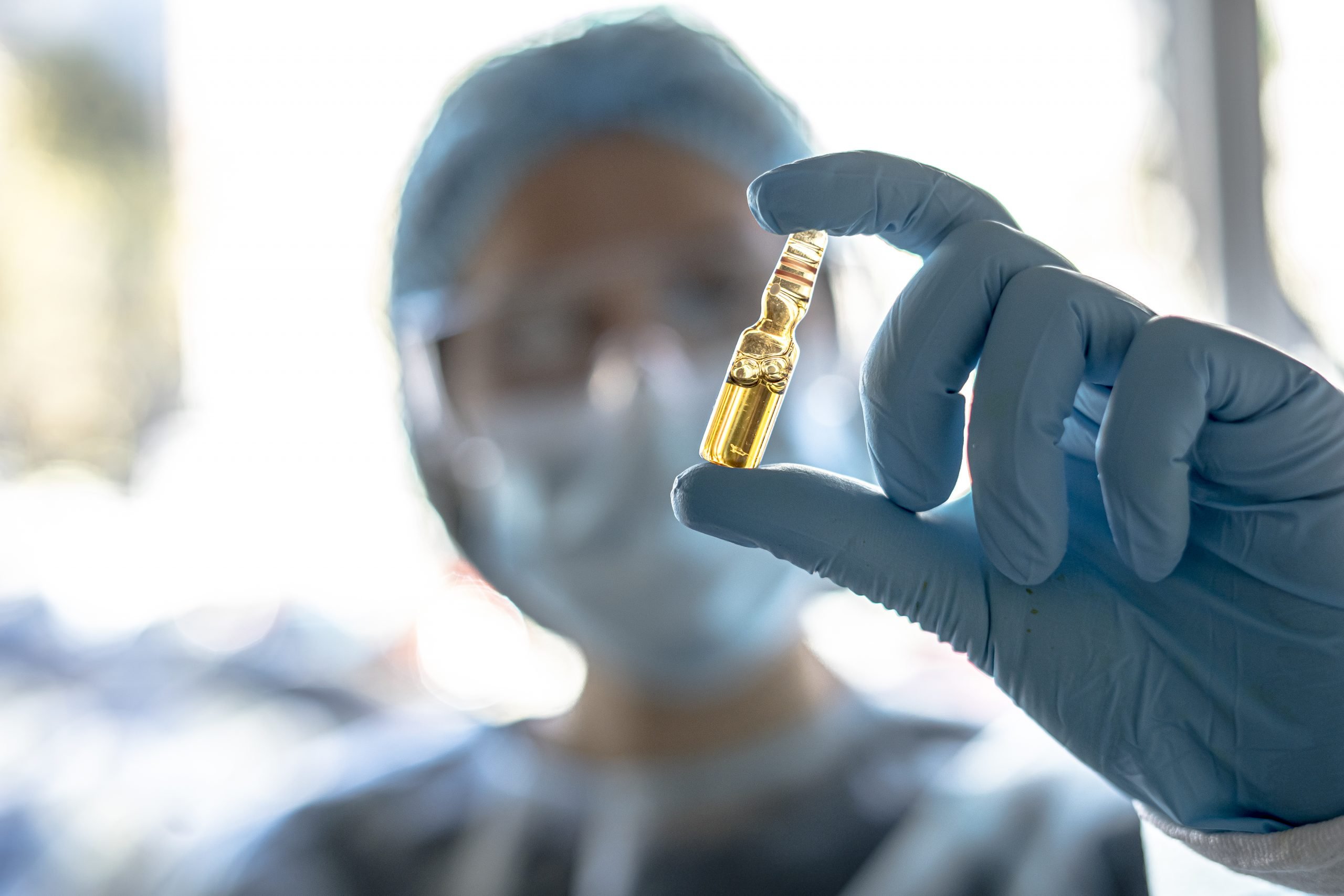Ketamine, originally known as a powerful anesthetic, has found a new role in the field of mental health treatment. Over the past few decades, its use has expanded significantly beyond the operating room. Today, how ketamine works is being utilized as a promising treatment for various psychiatric conditions, including depression and anxiety. The drug’s ability to provide rapid relief from depressive symptoms, even in cases where other treatments have failed, has sparked a growing interest among healthcare professionals and patients alike.
Ketamine NMDA Receptor
NMDA Receptor
The NMDA (N-methyl-D-aspartate) receptor plays a pivotal role in neural transmission within the brain, particularly in processes related to learning and memory. These receptors are specific types of receptors for the neurotransmitter glutamate, which is the primary excitatory neurotransmitter in the brain. When glutamate binds to these receptors, it allows calcium ions to flow into the neuron, which can lead to various neural activities depending on the context and location within the brain.
Role of Glutamate in the Brain
Glutamate is more than just a neurotransmitter; it’s a crucial signaling molecule that impacts nearly every aspect of brain function. It is involved in most aspects of normal brain operation including cognition, memory, and learning. High levels of glutamate can lead to excitotoxicity, which can cause neuronal damage and death. That’s why the brain must maintain a delicate balance in glutamate levels to function properly and avoid harm.
Inhibition of NMDA Receptor
Ketamine acts uniquely compared to other antidepressants. It binds to the NMDA receptor, but instead of stimulating it, ketamine blocks, or antagonizes these receptors. This inhibition disrupts the normal action of glutamate. By doing so, ketamine prevents the overstimulation of the brain cells by excess glutamate, which is often associated with depression. This action is critical to its rapid antidepressant effects.
Downstream Effects of NMDA Receptor Inhibition
Activation of the mTOR Pathway
It then initiates a cascade of biochemical events, one of which includes the activation of the mammalian target of the rapamycin (mTOR) pathway. This pathway is crucial for regulating cell growth, cell proliferation, cell motility, cell survival, protein synthesis, and transcription. When activated by ketamine, the mTOR pathway promotes the synthesis of proteins that are essential for forming new synaptic connections in the brain.
Synapse Formation and Neuroplasticity
The activation of mTOR pathways leads directly to enhanced synapse formation, a process known as neuroplasticity. Ketamine promotes the growth and development of neural networks in areas of the brain that are critical for emotion regulation and cognitive function. This neuroplastic effect is one of the reasons ketamine can quickly alleviate symptoms of depression and help in the recovery of brain functions that are impaired in depressive states.
Strengthening of Neural Circuits
Beyond just forming new synapses, the ketamine therapy mechanism strengthens existing neural circuits. This reinforcement of neural pathways can lead to more robust and resilient brain function. Patients often experience improved thought patterns, emotional stability, and resilience to stress. These enhancements are particularly important in the treatment of chronic mental health conditions where neural circuits are typically weakened or dysfunctional.
Neurotransmitter Interactions
Increase in Serotonin Levels
One of the pivotal responses to the ketamine mechanism of action is the increase in serotonin levels, a neurotransmitter often associated with feelings of well-being and happiness. Here are the key steps by which ketamine influences serotonin levels:
- Activation of AMPA Pathway: Following the reduction in glutamate overactivity, ketamine stimulates the AMPA pathway, a crucial component in the synaptic transmission process. This activation leads to the production of Brain-Derived Neurotrophic Factor (BDNF), which plays a vital role in neuronal growth and health. BDNF not only helps in the survival of existing neurons but also encourages the growth of new synapses, essential for effective brain function. This step is pivotal as increased levels of BDNF are closely linked with improved neuronal health and resilience, facilitating better management of mood and emotional responses.
- Enhanced Serotonin Release: With higher BDNF levels, the function of serotonin-producing neurons in the raphe nuclei—regions in the brainstem pivotal in regulating mood—is significantly improved. This enhancement leads to a more robust release of serotonin across the brain. Serotonin is well-known for its role in promoting feelings of well-being and happiness, and its increased availability is crucial in countering the symptoms of depression and other mood disorders.
- Improved Mood Regulation: The culmination of these processes results in substantially increased serotonin levels in the brain, which contribute to better mood regulation. This improvement is crucial in alleviating symptoms of depression and enhancing overall emotional well-being. Patients undergoing ketamine therapy often report a rapid improvement in mood, which is a direct consequence of the enhanced serotonin signaling facilitated by ketamine’s unique action on the brain’s neurochemistry.
The implications of these findings are profound, offering hope and a new avenue for treatment for those suffering from resistant forms of depression. This understanding also underscores the importance of continued research into ketamine and its effects on brain function, which could lead to more refined treatments for a variety of mood disorders in the future.
Dopamine Modulation
Ketamine also affects dopamine, another neurotransmitter critical for motivation, pleasure, and reward. It is particularly important because it helps address symptoms of depression related to anhedonia (the inability to feel pleasure). By increasing dopamine activity, ketamine can help restore a sense of pleasure and interest in activities, which is often diminished in depressive disorders.
Broad-Spectrum Efficacy
The complex interaction of ketamine and neurotransmitters explains its broad-spectrum efficacy in treating a variety of mental health disorders. Not limited to depression, ketamine has shown promising results in treating anxiety, post-traumatic stress disorder (PTSD), and even obsessive-compulsive disorder (OCD). Its ability to rapidly modulate several key neurotransmitter systems makes it an effective treatment across these conditions.
How Ketamine Affects the Brain
Promotion of Neurogenesis
This effect is particularly pronounced in the hippocampus, an area vital for memory and learning. The ability of ketamine to promote neurogenesis is a key factor in its effectiveness in treating depression and enhancing cognitive functions. This growth not only helps to alleviate symptoms of depression but also contributes to the overall health and resilience of brain structures, potentially reversing the damage caused by chronic stress or illness.
Reduction of Brain Inflammation
Chronic inflammation within the brain has been linked to a variety of psychiatric disorders, including depression and anxiety. Ketamine has anti-inflammatory properties that help reduce this inflammation, thereby alleviating symptoms and contributing to a healthier brain environment. This reduction in inflammation may also enhance the efficacy of other treatments and prevent the progression of neurodegenerative diseases.
Ketamine for Anxiety
Effectiveness in Generalized Anxiety Disorder
In the context of generalized anxiety disorder (GAD), ketamine has shown promise in rapidly reducing pervasive feelings of worry and fear. Patients report a significant decrease in the intensity and frequency of their anxiety symptoms, which often includes a reduction in physical symptoms such as restlessness and tension. Quick and effective relief can be particularly beneficial for those who have struggled with chronic anxiety and have been resistant to other forms of therapy.
Improvement in Quality of Life
With reduced anxiety, individuals often find themselves better able to participate in personal relationships, displaying increased empathy, improved communication, and a greater capacity for emotional connection. This improvement extends to professional environments as well, where they can contribute more actively and with increased confidence. The anxiety reduction also frequently leads to a more stable emotional state, helping individuals handle daily stresses with greater ease and maintaining a more consistent performance in their occupational roles. Additionally, the impact of ketamine on sleep patterns further amplifies its positive effects on life quality. Many anxiety sufferers experience disrupted sleep, which can exacerbate their condition, leading to a vicious cycle of sleeplessness.
The Ketamine Therapy Process
Intravenous Infusion Under Medical Supervision
Ketamine infusion therapy represents a breakthrough in treating mood disorders. This innovative approach involves administering ketamine intravenously under strict medical supervision, a process meticulously designed to maximize therapeutic outcomes while ensuring patient safety. Here is an exploration of each step involved in the ketamine therapy process:
- Pre-treatment Assessment: Before beginning the treatment, patients undergo an extensive medical and psychological evaluation. This step is crucial to tailor the therapy to the individual’s specific needs and to ensure safety throughout the process. Medical professionals assess the patient’s health history, current mental state, and any potential risks or contraindications. This assessment helps in determining the appropriate dosage of ketamine, thereby optimizing the effectiveness of the treatment while minimizing risks.
- Setting and Preparation: The environment in which ketamine infusion takes place is carefully controlled to promote relaxation and safety. Patients are placed in a quiet room with a comfortable reclining chair to help ease any anxiety. The setting is designed to be soothing, with attention given to lighting and noise levels. During the infusion, vital signs such as heart rate, blood pressure, and oxygen levels are continuously monitored by medical staff.
- Dosage and Administration: The actual administration of ketamine is conducted with precision. A specific dose, customized based on the pre-treatment assessment, is delivered intravenously over a period typically lasting between 40 to 60 minutes. This controlled administration allows for a gradual effect of the medication, which can be adjusted depending on the patient’s response during the session. The slow infusion helps to maximize the therapeutic effects while minimizing side effects, making the treatment both effective and tolerable.
- Monitoring and Adjustment: Throughout the infusion process, the medical team closely observes the patient’s response to the treatment. This monitoring is critical to ensure that the dosage is effective yet safe. Adjustments to the rate of infusion or the dosage are made as needed, based on the patient’s ongoing response. This responsive approach allows for a customized treatment experience, ensuring that the patient achieves the maximum benefit from the therapy while remaining comfortable and secure.
- Post-infusion Care: After the ketamine infusion is complete, the patient remains under close observation for a period to ensure that all immediate effects of the drug wear off safely. This post-infusion care is essential to monitor for any adverse reactions and to ensure that the patient is stable before they leave the clinic. Patients are typically observed until it is deemed safe for them to return home, often with a friend or family member.
The structured approach of ketamine infusion therapy highlights its potential as a powerful tool in the treatment of complex mood disorders. By adhering to a meticulous protocol, this therapy not only offers hope to those who have struggled with conventional treatments but also sets a high standard of care in the application of advanced therapeutic techniques.
Typical Course of Treatment
Most treatment protocols involve a series of infusions over several weeks. Initially, patients might receive two to three infusions per week, which may taper off as symptoms improve. The long-term plan may include maintenance infusions at less frequent intervals to help sustain the benefits of the treatment over time.
Ketamine Treatment Benefits
Rapid Onset of Action
One of the most significant advantages of ketamine brain effects is its ability to provide quick relief from depressive and anxiety symptoms. Unlike traditional antidepressants that can take weeks to become effective, ketamine can produce noticeable improvements within hours after the first infusion. This rapid onset of action is particularly crucial for patients experiencing severe symptoms or those at risk of self-harm, as it can quickly alter the course of their condition and provide immediate relief.
Potential to Revolutionize Mental Health Care
Ketamine’s diverse impacts on brain function and its ability to treat various psychiatric conditions rapidly suggest that it could significantly revolutionize mental health care. Its success in quickly reducing symptoms of severe depression, anxiety, and other mood disorders highlights its potential as a powerful tool in mental health treatment strategies. Changes in treatment paradigms have the potential to improve not just the quality of care provided to individual patients but also to improve the management and treatment of mental health disorders more broadly.
Given its impressive benefits, healthcare providers and patients must consider ketamine for depression as a viable treatment option. Patients struggling with severe or treatment-resistant mental health conditions may find it particularly beneficial. Medical professionals should evaluate the potential of ketamine therapy in their practice, considering its rapid effects and broad-spectrum efficacy to better address the needs of their patients.


























